You have probably heard the saying “The house always wins”. And indeed, this is the truth as after all, casinos are not charity organisations and need to turn a profit in order to cover the costs associated with paying their employees and maintaining the venue. Because of this, every casino game has a small built-in advantage in favour of the house, which allows gambling venues to profit from both winning and losing bets.
This built-in advantage is commonly referred to as vigorish, house edge or house advantage and ranges from one casino game to another. In some casino games, the house edge also depends on the type of bet one places. The house edge represents the mathematical advantage the gambling venue has over players and reflects the difference between the real probabilities or odds of winning and the casino’s payouts for winning bets in specific games.
It is important to mention players can never fully offset the house edge no matter how skilled or experienced they are. Of course, individual gamblers can win money over short periods of time but in the long run, they are always at a loss because the house does not pay their winnings off fairly, on the basis of the true odds. That is why experienced players typically engage in games which have lower house advantage.
As far as its house edge is concerned, roulette is a mid-range game, but in this instance the house advantage differs depending on which variation of the game one plays. For example, in American roulette where there are two zero pockets on the wheel, the advantage of the casino is significantly higher at 5.26%. In comparison, European roulette, with its single-zero wheel, can be more profitable for players because the house has an advantage of 2.70% only. Please note the house edge in roulette remains the same despite the fact the payouts for different types of bets vary.
The ability to calculate the house edge in the game of roulette is crucial because it enables players to make more informed choices when placing their bets and thus, minimise their losses when playing for longer periods of time.
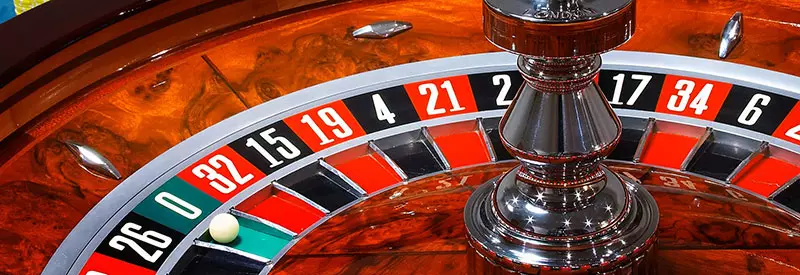
Calculating the House Edge
Let’s demonstrate how the house edge is estimated in a game of European roulette. There are 37 pockets – 36 numbered ones and a single-zero pocket. If you place a Straight Up bet on any given number, mathematically your chances of winning are 37 to 1. This is what the true odds dictate. Yet, the casino holds players at a slight disadvantage as it pays out 35 to 1 for winning Straight Up bets.
To make things as simple as possible, let’s assume you have wagered £1 on every single number on the wheel, including the zero. You are guaranteed to win on one of the 37 numbers and have left a total of £37 in casino chips at the table. Yet, you will collect £36 (your original wager plus £35 in profit), regardless of which the winning number is. It turns out you pay £37 to win only £36 which practically means you are £1 behind. And don’t forget the longer you play, the greater this discrepancy will become.
To calculate the house edge for Straight Up bets in roulette, all you have to do is divide the difference of £1 by the number of the pockets on the wheel, which in this case is 37. So, 1/37 = 0.027027027 which makes for 2.70% ( 0.027027027 x 100 = 2.70270). Using this formula, players can calculate the house edge for all inside bets in roulette.
Roulette Layout
Roulette Wheel Types
Roulette House Edge
Roulette Inside Bets
Roulette Outside Bets
Or you can calculate the house edge for Straight Up bets in the following way – the odds of winning with a single number in European roulette are 1 to 37 (1/37), while those of losing your stake are 36 to 37 (36/37). As we know, the house pays 35 to 1 for winning Straight Up bets. In this case, the formula will be: -1 x 36/37 + 35 x 1/37 = 0.0270 x 100 = 2.70%.
If you calculate the house edge for even-money bets, you will get the same result. Let’s assume, you want to place an Odds or Even bet and wager £1 on Even. As we know, there are 18 even numbers of the wheel, which means there are 18 ways to win with this bet. Yet, there are also 18 odd numbers plus the zero pocket, which makes for 19 ways to lose.
Thus, your chances of losing are 19 to 18. The house pays 1 to 1 for this type of bet. Your chances of winning are 18 to 37. To make the calculation, you will have to use fractions, so you will need equal denominators. For the purpose, you should multiply the numerator and the denominator of the fraction that represents the house odds by 18/18. This will be the result – 1/1 x 18/18 = 18/18. From this, we get the following: 19/18 – 18/18 x 18/37 = 1/18 x 18/37 = 1/37 = 0.0270270. In order to calculate the house edge percentage, you need to multiply your result by 100. Thus, you get 0.0270270 x 100 = 2.70%.
There are many different bets one can place in a game of European roulette and their payouts vary accordingly. Players’ chances of winning with some of them are greater, but the house will always have the same advantage for all types of bets, namely 2.70%.
While there is no way to completely offset the advantage of the casino, being able to calculate the house edge will help players place smarter bets, implement a suitable betting strategy and minimise there losses in the long run.
| European Roulette House Edge | |||
|---|---|---|---|
| Bet Type | Bet Payout | Bet Probability | House Edge |
| Straight | 35/1 | 2.70% | 2.70% |
| Split | 17/1 | 5.41% | 2.70% |
| Street | 11/1 | 8.11% | 2.70% |
| Square or Corner | 8/1 | 10.81% | 2.70% |
| Six Line | 5/1 | 16.2% | 2.70% |
| Column | 2/1 | 32.4% | 2.70% |
| Dozen | 2/1 | 32.4% | 2.70% |
| Red / Black | 1/1 | 48.64% | 2.70% |
| Odd / Even | 1/1 | 48.64% | 2.70% |
| High / Low | 1/1 | 48.64% | 2.70% |
| American Roulette House Edge | |||
|---|---|---|---|
| Bet Type | Bet Payout | Bet Probability | House Edge |
| Straight | 35/1 | 2.63% | 5.26% |
| Split | 17/1 | 5.26% | 5.26% |
| Street | 11/1 | 7.89% | 5.26% |
| Square or Corner | 8/1 | 10.53% | 5.26% |
| Five Line | 6/1 | 13.16% | 7.89% |
| Six Line | 5/1 | 15.79% | 5.26% |
| Column | 2/1 | 31.58% | 5.26% |
| Dozen | 2/1 | 31.58% | 5.26% |
| Red / Black | 1/1 | 46.37% | 5.26% |
| Odd / Even | 1/1 | 46.37% | 5.26% |
| High / Low | 1/1 | 46.37% | 5.26% |
| French Roulette House Edge * | |||
|---|---|---|---|
| Bet Type | Bet Payout | Bet Probability | House Edge |
| Straight | 35/1 | 2.70% | 2.70% |
| Split | 17/1 | 5.41% | 2.70% |
| Street | 11/1 | 8.11% | 2.70% |
| Trio (0,1,2 / 0,2,3) | 11/1 | 8.11% | 2.70% |
| Four-Number (0,1,2,3) | 8/1 | 10.81% | 2.70% |
| Square or Corner | 8/1 | 10.81% | 2.70% |
| Six Line | 5/1 | 16.2% | 2.70% |
| Column | 2/1 | 32.4% | 2.70% |
| Dozen (P12, M12, D12) | 2/1 | 32.4% | 2.70% |
| Red / Black | 1/1 | 48.64% | 2.70% |
| Impair (Odd) / Pair (Even) | 1/1 | 48.64% | 2.70% |
| Manque (Low) / Passe (High) | 1/1 | 48.64% | 2.70% |
* In French roulette, when even money bets are placed and the ball ends up in the zero pocket, only half of the bet is returned to the player. This is known as the “half-black” or “en prison” rule and reduces the house edge when placing even money bet to 1.35%.
The Impact of the House Edge
It goes without saying that the edge the house has over players will have a major impact on the results they will enjoy over the long term. In spite of the fact that with the single-zero roulette variants, the edge of the house is smaller, its influence will be profound and constant, which we will illustrate now.
Let’s assume that you have decided to stake a total of £50 per spin by staking 10 chips, each of which is worth £5. This will mean that the house will collect £1.35 for each of the wagers you will make. Therefore, if we assume that you decide to spend about an hour at the roulette table, this will mean that ultimately, you will have made about 70 stakes. What this means is that in such cases, the casino will collect £94.50 from the wagers you have made, thus eating up a significant portion of your gaming bankroll.
Gambling enthusiasts who still struggle to figure out how their gaming bankroll is likely to deplete while they bet on roulette should certainly pay more attention to the following example. Let’s assume that you prefer to bet on black rather consistently, and you will risk a single chip for a total of 370 spins in order to figure out how long your bankroll will last and what your wins and losses will be.
During the course of these spins, players will see the zero to show up about 10 times, which will cost them 10 of their chips. The results from the rest of the spins will fall in line due to the fact that black will show up 180 times, so will red.

Distinguishing between True and Casino Odds
Becoming a successful roulette player does not go without reading up on the difference between true and casino odds. So as to make sure that gambling enthusiasts will easily make heads or tails of the matter, we will first explain what odds are.
As you might already know, roulette is an entirely chance-based casino game, which means that players’ actions will have no effect on the way in which the game pans out. The same does not apply to casino games that are skill-based as in such cases, the decisions gambling aficionados make will have an impact on the results they will ultimately enjoy.
The Role Probability Plays in Roulette
In essence, probability is the backbone of all mathematics that are used not only in roulette, but in other casino games as well, which is the reason why players should gain proper knowledge of it.
At first, roulette fans might find it a bit hard to figure out what probability is as it is used to determine what is the likelihood of a certain outcome to present itself after taking into account the total number of all possible results.
Probability can be given using fractions, decimals, or can be expressed using percentages. No matter the case, the value that is attached to probability cannot go over 100 and should not be lower than 0. The closer the value is to the 0%, the smaller the chances of that event to occur are, and conversely, the closer the value reaches to 100%, the greater the certainty that the event can come about will be.
Therefore, if we take as an example a toss of a coin, the probability of heads or tails to show up will be 1, which means absolute certainty as there is no other possible outcome. In the same vein, if two dice are thrown, the probability of getting 13 will be 0 for the simple reason that there are no combinations that form such a total.
When roulette is concerned, however, there will be 37 possible outcomes when playing European or French roulette and 38 possible outcomes when betting on American roulette.
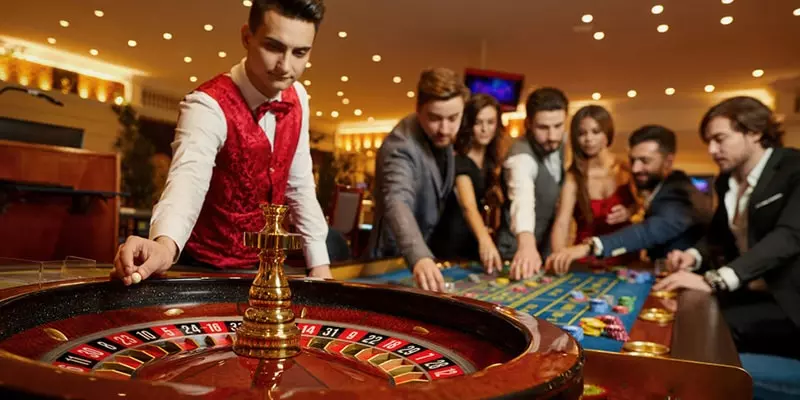
If we take this information into account, and we presume that European roulette is more to your liking, we can easily figure out what is the probability of each number to appear next time the wheel is spun.
If we take 14 as an example, we will need to divide the number of ways in which players’ wagers on that number will be settled as winning ones, which in this case is just one, by the total number of possible combinations, which is 37. Therefore, we will get that the probability of 14 to turn out to be the winning number is 0.027 (1/37).
As it seems, for most gambling enthusiasts, it is easier to look at probability using percentages. In order to convert the above-mentioned value, we simply need to multiply it by 100, thus getting 2.70%.
Roulette Probability and Odds
Although many gambling aficionados think that odds and probability are used to denote one and the same thing, this is not exactly the case because mathematically speaking, there is a difference between them.
The difference between these two terms lies in the fact that while probability compares the ways in which a specific outcome can occur to the total number of possible outcomes, odds juxtapose the number of ways something can take place with the number of ways in which it cannot.
As soon as players have already estimated the probability of a specific outcome, they will be able to figure out what the odds of winning are. When you want to know the odds of winning, however, you can estimate it using this formula: Pw/1 – Pw. Here, Pw is used to describe the probability of winning we already calculated.
Something vital gambling enthusiasts need to know is that unlike probability that is converted into a decimal, this is not the case with odds as instead, their value will be represented as a ratio. Please note that odds can solely consist of whole numbers.
As it seems, what might be a bit confusing for some players is that sometimes, the value of the odds is reversed. What this means is that their value will designate the odds against winning instead of indicating the odds of winning. Naturally, so as to figure out what the odds against winning are, players will be required to divide the number of ways in which they will lose by the number of ways to win.
In spite of the fact that players are unlikely to have a hard time telling odds against from odds for, things might seem a bit more involved as soon as the value of the odds goes closer to the even.
Something crucial roulette fans should be aware of is that larger payoffs are offered in the cases when the likelihood of winning is rather small.
True and Casino Odds Compared
As it seems, many roulette players, seasoned ones included, are hard put to tell the difference between true and casino odds. It is vital to remember that the odds of winning are just the opposite of true casino odds or the odds paid.
As we mentioned above, casinos bet against their customers, which is the reason why the payouts players are provided with do not coincide with the ones that should be given against winning. To make sure that casinos will gain their profit margin, the odds gambling enthusiasts will be provided with will be less than the value of the true casino odds.
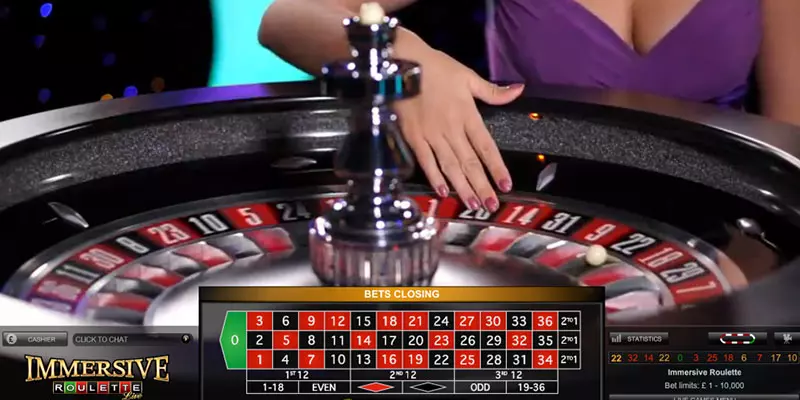
Inexperienced players sometimes tend to think that casino odds are much more advantageous, and this is so because of a ploy the bulk of the casinos utilise. On some occasions, players might notice that the offered payoffs are not 5 to 1, but 5 for 1, which will have a crucial difference when the amount players will receive is concerned.
This is a vital distinction to make due to the fact that when the payoff casino enthusiasts are offered is 5 to 1, this will mean that together with their original stake of 1 unit, they will be paid 5 more units. Yet, this will not be the case when the payoffs are written 5 for 1 because in such cases, players will do get 5 units, but they will need to pass up their initial wager.
How This Applies to Roulette
Once gambling aficionados have added to their knowledge on probability and odds, it will be much easier for them to find out how this all applies to the game of roulette.
In the case of American roulette, the numbers that are featured on the wheel are a total of 38, which means that when opting for a straight bet, there is just one way in which your wager can be resolved as a winning one, and 37 ways in which it can be resolved as a losing one.
Therefore, the odds of winning will be 1 to 37, while the odds against winning will be 37 to 1. Still, such payoffs are not awarded even when players’ straight bets are settled as winning ones as instead, the casino will grant payoffs of 35 to 1, which is referred to as casino odds.
Roulette Overdue Numbers
Apparently, many roulette novices fall prey to the misconception of overdue numbers. Some gambling enthusiasts consider that when a specific number has not been a winning one after a greater number of spins of the wheel have taken place, the small white ball will certainly land on it very soon.
In spite of the fact that this might make perfect sense to some inexperienced players, they do not take into account the fact that roulette is a quasi-random casino game, which means that the spins of the roulette wheel that are about to come will not be impacted in any way by the spins that have already taken place.
It is of vital significance to remember that the roulette wheel does not have a memory, and there is no mechanism that is used so as to keep track of the numbers that have recently come out or the ones that have not presented themselves for some time.
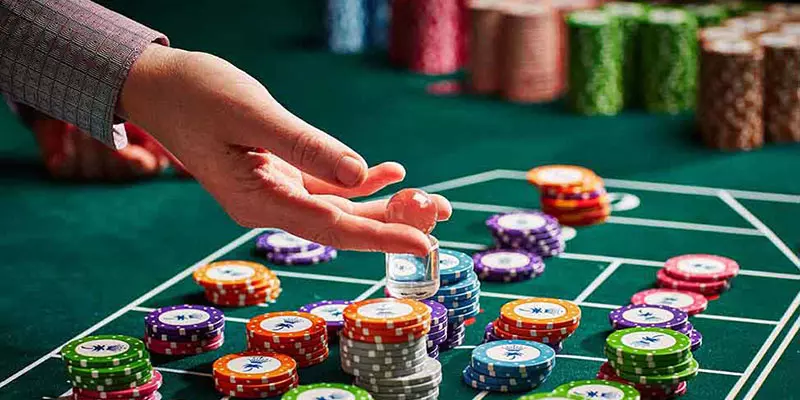
Since the spins that are about to take place will continue to be unaffected by the ones that have already occurred, it makes sense that each new spin of the wheel is referred to as an independent event.
What this means is that in the case of American roulette, the probability of the number you have picked to show up will be 1 to 38. No matter if that same number has already appeared several times or it has not come up at all during the last one hour, this will not change the probability of the number to become a winning one next time when the ball stops spinning.
Repeating Numbers
Things might get even more involved for players also when statistics are thrown in the mix, and more specifically when two or more events that follow one after another are concerned.
As likely as not, some players might be wondering what is the probability of a number to come out two times in a row. In fact, we can easily figure that out simply by multiplying the individual probability of that particular number to emerge.
When American roulette is concerned, the probability of one of the numbers, say 13, to pop up two times in a row will be 1/1444 (1/38 x 1/38). The probability of the little white ball to land on 13 three times in a row will be 1/54872, which we got as follows: 1/38 x 1/38/ x 1/38. As it might have already hit roulette lovers, the odds of that number to become a winning one swindle exponentially as the number of the repetitions grows.
In spite of that, the probability of 13 to pop up will continue to be 1/38, regardless of what happened on the previous few spins of the wheel and regardless of the fact that the odds of that number to be a winning one four times in succession are minuscule.
The appearance of one and the same number several times in a row is not such an infrequent occurrence as some players might consider.
Is It Possible to Win Regularly on Roulette
Roulette ranks among the casino games that entice both total novices and seasoned players with its action-packed gameplay and the winning opportunities it provides. Yet, the question that players of all levels of expertise keep on asking themselves is whether it is possible to win regularly while betting on roulette.
It might come as a disappointment for many of you, but winning at roulette every time is simply not achievable. The good news is that there are certain things roulette lovers can do in order to enhance their performance.
So as to enjoy a fruitful betting session, you should make sure that the amount the casino will collect will be smaller than the amount you have bagged. One of the things gambling enthusiasts should consider doing in order to attain this is to find a single-zero roulette variation that best suits their preferences and style of play. Playing such a roulette variant will allow you to have the best of the game simply because the edge of the casino shrinks from 5.26% to 2.70%.
Furthermore, while playing at brick-and-mortar casinos, gambling enthusiasts can attempt to figure out if there are any irregularities with the roulette wheel and capitalise on them, if such are found.
It should be noted, however, that this might turn out to be rather hard due to the fact that casinos monitor the wheels closely in order to make sure that if bias is detected, it will be weeded out right away.
Otherwise speaking, players are advised to stick to single-zero roulette variants and to pay special attention to the roulette wheel so that they could figure out if it has any physical flaws.
Advantage play is a term even some roulette newbies might be familiar with. In fact, this is a term that is used to describe the different methods players resort to when they aspire to guarantee themself a profit. It is important to note that this can be a strategy that aims at providing gambling enthusiasts either with a physical or a statistical advantage over the house.
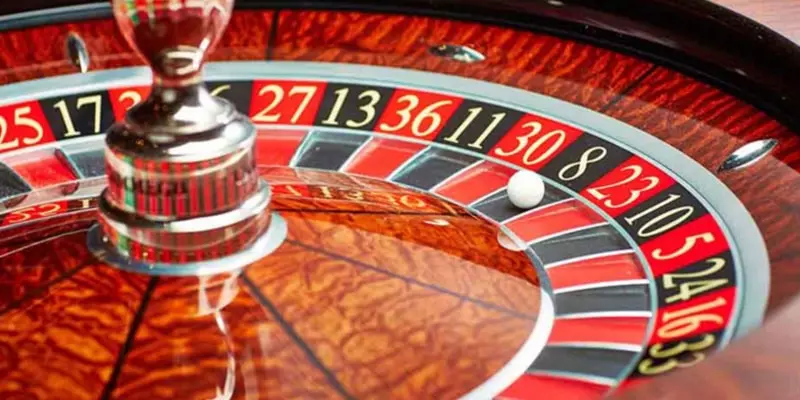
Another important thing that is worth mentioning about advantage play is that its prime focus is the roulette wheel, and not the betting layout and that it can be applied while playing roulette offline and over the Internet.
One of the most common systems roulette lovers tend to stick to is the one that incorporates inside bets that are laid on specific sectors of the wheel. There are also systems that are based on outside bets, but the ones according to which chips are split between several sections are also hugely popular among roulette mavens.
Yet, players should take into account the fact that no-lose roulette systems simply do not exist.
The Best Numbers to Bet on While Playing Roulette
Something gambling enthusiasts need to take on board is that in terms of probability, a number is just as likely to turn out to be a winning one as the rest of the numbers that are featured on the roulette wheel. Yet, the same does not apply to the different types of wagers gambling enthusiasts can opt for as the odds of winning are not alike.
It goes without saying that the more numbers roulette lovers bet on, the greater the odds of winning will be. Yet, many casino enthusiasts erroneously consider that when their stake covers multiple numbers, the rewards they might collect will be more generous.
When betting on Red/Black, Evens/Odds, and Lows/Highs, the odds of winning will be the highest, no matter whether it comes to European or American roulette. Next come Dozens, Columns, and Six Line bets.
As we previously explained, when making up their minds about the number or group of numbers to bet on, many players are guided by the idea that certain numbers are cold, while others or hot. As you may already know, cold numbers are the ones that have not shown up for longer, and hence, hot numbers are the ones that become winning ones more often.
Many gambling enthusiasts tend to bet on the numbers that have not shown up for quite some time in the hope that the white ball will soon land on them. As we already clarified, this is a common misconception among roulette players, and they should remember that the probability of a specific number to show up remains the same, and most importantly, the previous spins of the roulette wheel are of no consequence to the spins to come.
Many roulette lovers stick to betting on their favourite number or numbers, which they consider a winning approach. Apparently, the numbers players most commonly lay their wagers on are 17 and 7, while 13 is the number that is generally avoided by players.